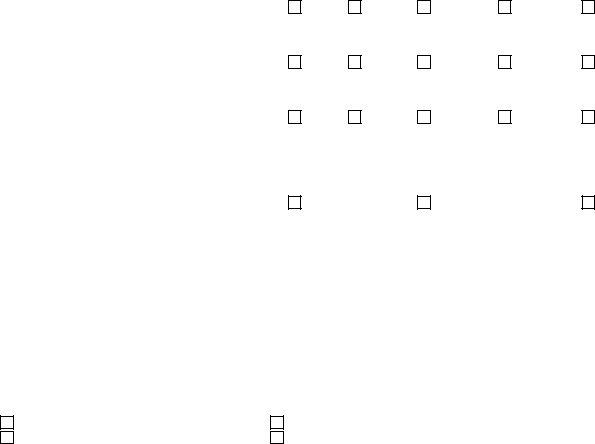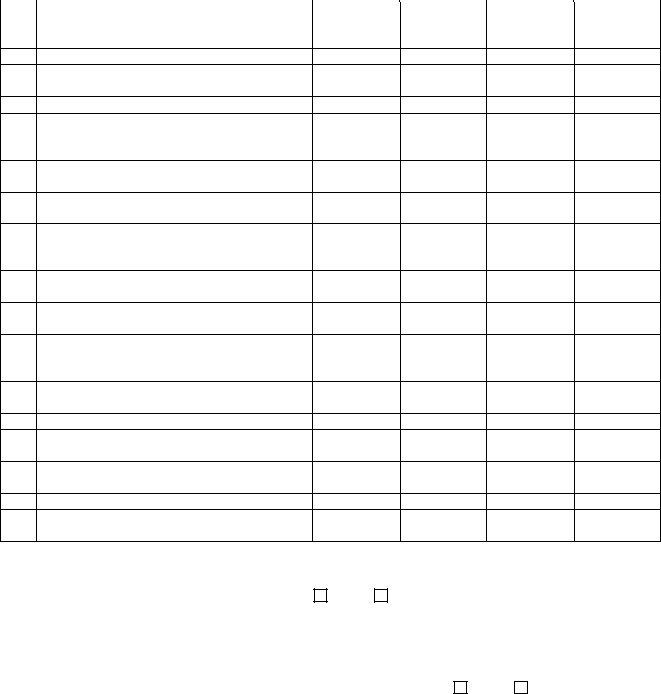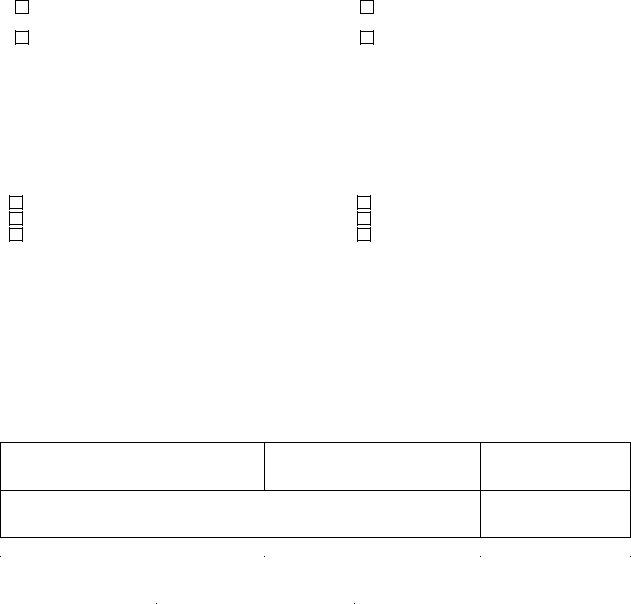The Mental Impairment Questionnaire form, designed by the State of Wisconsin Department of Children and Families, serves as a comprehensive document for evaluating individuals' mental health conditions in relation to their participation in the Wisconsin Works (W-2) program. This form requires detailed input from a mental health professional concerning the patient's diagnosis, treatment, symptoms, and functional limitations. It outlines the necessity of providing a Social Security Number for application processing and highlights the various uses and potential verification processes attached to this information. The form is structured to facilitate a thorough assessment of the patient's ability and readiness to engage in work or work-related activities, taking into account their symptoms, treatment progress, medication side effects, and the potential longevity of their condition. It seeks to understand the patient's social and professional functionality, focusing on their capabilities and limitations in daily living, social interactions, work performance, and adaptability to work environments. Recommendations from health professionals regarding the patient's participation in work readiness activities, potential work environment adjustments, treatment plans, and a review schedule form crucial parts of this evaluation process. This extensive information collection aims at assisting program administrators in making informed decisions on assigning suitable activities or modifications to aid the individual's journey towards self-sufficiency.
| Question | Answer |
|---|---|
| Form Name | Mental Impairment Questionnaire Form |
| Form Length | 5 pages |
| Fillable? | No |
| Fillable fields | 0 |
| Avg. time to fill out | 1 min 15 sec |
| Other names | mental impairment questionnaire, cclicenseing ccformspubs, mental impairment questionnaire rfc listings, mental impairment questionnaire pdf |

STATE OF WISCONSIN
DEPARTMENT OF CHILDREN AND FAMILIES
Division of Family and Economic Security
MENTAL HEALTH REPORT
Personal information you provide may be used for secondary purposes [Privacy Law, s. 15.04 (1)(m). Wisconsin Statutes]
The provision of your Social Security Number (SSN) is mandatory under Wisconsin Statutes 49.145 (2)(k). Your SSN may be verified through computer matching programs and may be used to monitor compliance with program regulations and program management. Your SSN may be disclosed to other Federal and State Agencies for official examination. If you do not provide your social security number, your application for
benefits will be denied.
Participant Name
Date of Birth
Social Security Number
/ /
Name of Professional Provider
Professional Title
Office Address
City
State
Zip Code
Dear Mental Health Professional,
The individual named above is an applicant/participant in the Wisconsin Works
Activities that can be a part of a
Ojob readiness/life skills workshops;
Oeducation and job skills training;
O
Orecommended medical treatments; and
Ocounseling and physical rehabilitation activities.
Please answer the following questions concerning this individual’s impairments:
1.How frequently is the patient scheduled to meet with you?
__________________________________________________________________________________________
Regarding current course of treatment, how long have you been meeting with this patient?
__________________________________________________________________________________________
When is your next scheduled appointment with this patient? __________________________________________
2.Are you aware of any other health care professionals who are currently treating this person? If yes, please identify provider name and purpose of treatment: _________________________________________________________
__________________________________________________________________________________________
3.
include code and diagnosis for each axis
in addition to mental health, please include any diagnosis related to alcohol or other substance abuse
Axis I: _____________________ |
Axis IV: ________________________ |
Axis II: _____________________ |
Axis V: Current GAF: _____________ |
Axis III: _____________________ |
Highest GAF Past Year: ___________ |
|
1

4. Identify your patient’s signs and symptoms associated with this diagnosis:
|
Poor Memory |
|
Time or place disorientation |
|
Appetite disturbance with weight loss |
|
Decreased energy |
|
Sleep disturbance |
|
Social withdrawal or isolation |
|
Personality changes |
|
Blunt, flat or inappropriate affect |
|
Mood disturbance or lability |
|
Illogical thinking or loosening of association |
|
Pathological dependence or passivity |
|
Anhedonia or pervasive loss of interests |
|
Delusions or hallucinations |
|
Manic syndrome |
|
Recurrent panic attacks |
|
Obsessions or compulsions |
|
Somatization unexplained by organic disturbance |
|
Intrusive recollections of a traumatic experience |
|
Psychomotor agitation or retardation |
|
Persistent irrational fears |
|
Paranoia or inappropriate suspiciousness |
|
Generalized persistent anxiety |
|
Feelings of guilt/worthlessness |
|
Catatonia or grossly disorganized behavior |
|
Difficulty thinking or concentrating |
|
Hostility and irritability |
|
Suicidal ideation or attempts |
|
Other: |
5.If your patient experiences symptoms which interfere with attention and concentration needed to perform even simple work tasks, during a typical workday, please estimate the frequency of interference. For this question, “rarely” means 1% to 5% of an
rarely
occasionally
frequently
constantly
Is your patient making positive progress? |
Yes |
No |
Please describe the progress or lack of progress. |
|
|
__________________________________________________________________________________________
__________________________________________________________________________________________
6. To the best of your knowledge, is the patient on prescribed medications? |
Yes |
No |
If yes, please list: |
|
|
__________________________________________________________________________________________
__________________________________________________________________________________________
Describe any side affects of prescribed medications which may have implications for working, e.g., dizziness, drowsiness, fatigue, lethargy, stomach upset, etc.:
__________________________________________________________________________________________
__________________________________________________________________________________________
7.When did your patient’s symptoms begin (estimate date)?
__________________________________________________________________________________________
8. Is it likely that your patient’s symptoms will last 6 months or longer?
Yes
No
9. Is it likely that your patient’s symptoms will last 12 months or longer? |
Yes |
No |
__________________________________________________________________________________________
10. Does the psychiatric condition exacerbate your patient’s experience of pain or any other physical symptoms? Yes No
If so, please explain:
__________________________________________________________________________________________
__________________________________________________________________________________________
2

11.When completing the chart below:
*A “Marked” degree of limitation may arise when several activities or functions are impaired or even when only one is impaired, so long as the degree of limitation is such as to seriously interfere with the ability to function independently, appropriately and effectively.
**“Concentration, persistence and pace” refers to ability to sustain focused attention sufficiently long to permit the timely completion of tasks commonly found in work settings. This is often evaluated in terms of frequency of errors, assistance required and/or time necessary to complete simple tasks.
***“Repeated” refers to repeated failure to adopt to stressful circumstances such as decisions, attendance, schedules, completing tasks, interactions with others, etc., causing withdrawal from the stress or to experience decompensation or exacerbation of signs and symptoms.
|
FUNCTIONAL LIMITATION |
|
DEGREE OF LIMITATION |
|
||
|
|
|
|
|
|
|
|
|
None |
Slight |
Moderate |
Marked* |
Extreme |
1. |
Restriction of activities of daily living |
|
|
|
|
|
|
|
|
|
|
|
|
2. |
Difficulties in maintaining social |
None |
Slight |
Moderate |
Marked* |
Extreme |
|
functioning |
|
|
|
|
|
|
|
|
|
|
|
|
3. |
Deficiencies of concentration, persistence |
Never |
Seldom |
Often |
Frequent |
Constant |
|
or pace resulting in failure to complete |
|
|
|
|
|
|
tasks in a timely manner (in work settings |
|
|
|
|
|
|
or elsewhere) ** |
|
|
|
|
|
|
|
|
|
|
|
|
4. |
Episodes of deterioration or |
Never |
|
Once or |
Repeated*** |
Continual |
|
decompensation in work or |
|
|
Twice |
|
|
|
settings which cause the individual to |
|
|
|
|
|
|
withdraw from that situation or to |
|
|
|
|
|
|
experience exacerbation of signs and |
|
|
|
|
|
|
symptoms (which may include |
|
|
|
|
|
|
deterioration of adaptive behaviors) |
|
|
|
|
|
|
|
|
|
|
|
|
12.Please describe any additional functional limitations not covered above that would affect your patient’s ability to work in a job on a sustained basis: ____________________________________________________________
_________________________________________________________________________________________
13.On the average, how often do you anticipate that your patient’s impairments would become acute so that the patient would be absent from work and other
Once a month or less About twice a month
Over twice a month
More than 3 times a month
14.Has there been any recent acute episodes? If yes, please explain and give dates:
_________________________________________________________________________________________
_________________________________________________________________________________________
3

15.To determine your patient’s ability to do
For each activity shown below, describe your patient’s ability to perform the activity according to the following items:
Unlimited to Very |
|
Ability to function in this area is more than satisfactory. |
|
|
||
Good: |
|
|
|
|
|
|
Good: |
|
Ability to function in this area is limited but satisfactory. |
|
|
||
Fair: |
|
Ability to function in this area is seriously limited, but not precluded. |
|
|||
Poor or None: |
|
No useful ability to function in this area. |
|
|
|
|
|
|
|
|
|
||
MENTAL ABILITIES AND APTITUDE |
UNLIMITED |
GOOD |
FAIR |
POOR OR |
||
|
NEEDED TO WORK |
TO VERY |
|
|
NONE |
|
|
|
|
GOOD |
|
|
|
1.Interact appropriately with general public
2.Understand, remember and carry out very short and simple instructions
3.Maintain attention for
4.Maintain regular attendance and be punctual with customary, usually strict tolerances
5.Sustain an ordinary routine without special supervision
6.Work in coordination with or proximity to others without being unduly distracted
7.Complete a normal workday and work week without interruptions from psychologically based symptoms
8.Perform at a consistent pace without an unreasonable number and length of rest
9.Accept instructions and respond appropriately to criticism from supervisors
10.Get along with
11.Respond appropriately to changes in a routine work setting
12.Deal with normal work stress
13.Be aware of normal hazards and take appropriate precautions
14.Deal with stress of
15.Perform detailed or complicated tasks
16.Perform fast paced tasks (e.g., production line)
16. Is the patient attending scheduled appointments?
Yes
No
If no, please explain and list missed appointment dates:
__________________________________________________________________________________________
__________________________________________________________________________________________
Do you attribute the missed appointments to the mental health impairment?
Yes
No
4

17.What kind of treatment plan is the patient involved in? What is the expected outcome?
__________________________________________________________________________________________
__________________________________________________________________________________________
__________________________________________________________________________________________
If schedule for treatment plan is known, please include below or attach:
__________________________________________________________________________________________
__________________________________________________________________________________________
18.Please recommend any other activities and services not included in your treatment plan that may help this individual further address his/her mental health impairment:
Assessment (please specify type)
_________________________________
Advocacy for Social Security Income/Disability
Treatment and counseling (please specify)
_______________________________
Other _______________________________
19.What type of environment or conditions could help this person function most effectively in a variety of daily activities? _________________________________________________________________________________
__________________________________________________________________________________________
20.Considering this patient’s mental health condition and limitations please indicate below what activities related to work and training you would recommend?
work/work experience activities |
job skills training |
adult basic education/literacy |
supported job search activities |
job readiness/life skills workshops |
other |
If no recommendations, please explain:
_________________________________________________________________________________________
_________________________________________________________________________________________
21.Estimate the hours a day (5 days a week) this individual can participate in work/work readiness activities within these recommendations? ____________________________________________________________________
_________________________________________________________________________________________
22.Given your patient’s current mental impairments, please specify a date when the recommendations that you have provided should be reviewed: ________________________________________________________________
Name of Professional Provider
Title
Telephone Number
Signature of Professional Provider
Date Signed
Return completed form to:
Name of Agency Representative |
Address |
|
Date Sent |
|
|
|
|
|
|
City |
State |
Zip Code |
Telephone |
Fax Number |
|
|
|
Number |
|
|
|
|
|
|
5